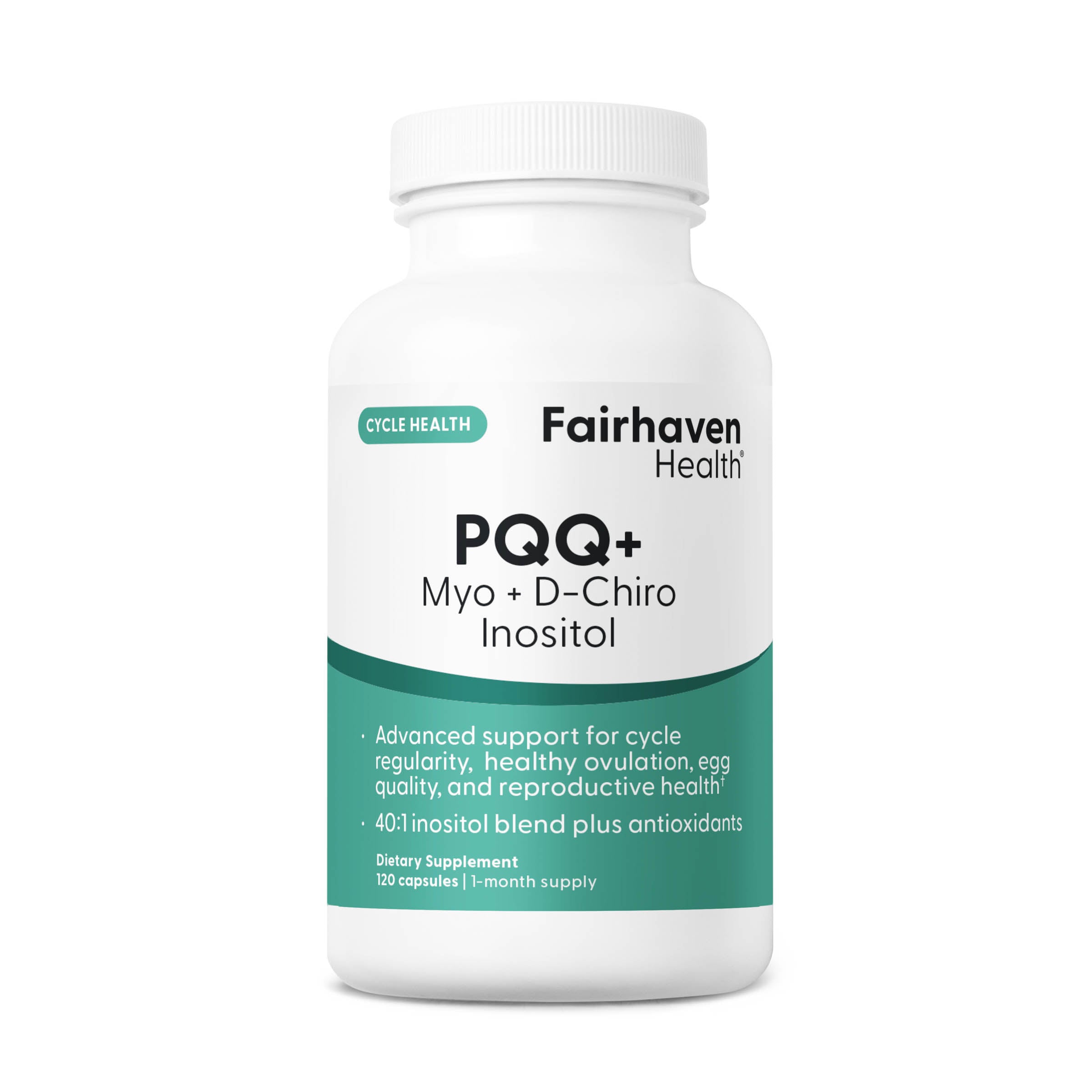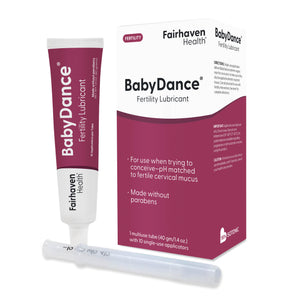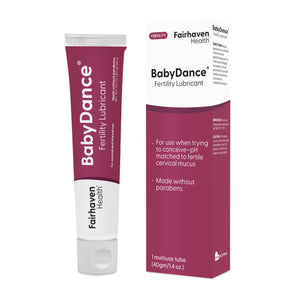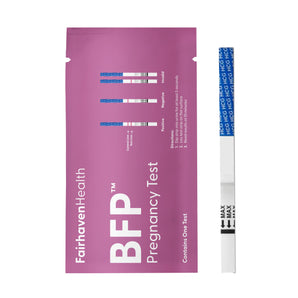By Dr. Chris D. Meletis
Are you at a healthy weight?
While there are exceptions to every rule, there are some diet and health basics to optimizing fertility that we shouldn't ignore. Maintaining a healthy weight is one them. If you are either too thin or overly heavy, peak fertility can be difficult to reach. It might be surprising to learn that our fat stores make estrogen, so carrying around too little or too much fat can upset hormone balance and negatively impact fertility.
One way to determine if you are at a healthy weight is to calculate your Body Mass Index (BMI). To determine your BMI, use the following equation: BMI = weight (lb) ÷ height2 (in2) × 703.
A general goal is to target a body mass index (BMI) of 20 to 24, so if you find that your BMI falls outside of this range, taking steps to either gain or lose weight may have a positive impact on your fertility. As I share with my patients, it is better to give it a good try than not try at all. From my clinical experience, every step in the right direction improves fertility.
Weight is Not Always Fair
We also know that one's body type is not always associated with one's caloric intake. Rather our weight and amount of body fat is influenced by many factors including food allergies, dysbiosis (imbalance between friendly and unfriendly gut bacteria), inflammation, genetic propensity to diabetes, and stress. So, while we know that maintaining BMI within a range of 20-24 is good for fertility, focusing too much on a hitting a specific BMI or a number on the scale is often stressful and frustrating, and thereby counterproductive. The good news is that the results from an 8 year study of more than 17,000 nurses show that simply eating well - avoiding processed and high glycemic index foods and eating lots of fresh vegetables, for example - can help improve fertility and reproductive health.
Below are some guidelines for Eating for Optimal Fertility:
Eat Low on the Glycemic Index
The glycemic index is a method for ranking foods based on the impact the food has on blood sugar levels. Generally speaking, foods with a low glycemic index are metabolized slower and cause a lower and slower rise in blood sugar levels, whereas food with a high glycemic index cause a rapid rise in blood sugar levels. In the Nurses' Health Study mentioned above, women in the highest glycemic-load category were much more likely to have ovulatory infertility compared to women with the lowest dietary and overall sugar burden. The key here is to avoid sugary (aka high glycemic index) foods that spike blood sugars, and work to keep your blood sugars under control. Low glycemic load foods include foods rich in fiber, like whole grains, vegetables, whole fruits, beans and nuts. Not surprisingly, the foods with a high glycemic index include sweetened beverages (including fruit juices), candy, white pasta and white rice.
Avoid Trans Fats
Focus on healthy, unprocessed oils rich in omega-3 fat, such as high quality fish oils, as well as nut and seed oils. I personally am not a fan of canola oil. Remember to avoid margarine because it often contains trans fats, and avoid frying in oils that will undergo "trans-formation" when heated. When cooking with oil, the oil should never get hot enough to smoke. If it does smoke, it means the oil has been over heated and should be discarded. Avoiding genetically engineered oils is also a smart idea. The oils most commonly genetically engineered are soy, corn, canola and cottonseed oil.
Is it Time to NOT go Low-Fat?
The dietary advice we hear from so-called health experts is sometimes confusing and misleading. Case in point: the low-fat diet. Once touted as the key to weight loss and good heath, research now points to some pitfalls with eating too little fat. According to research, eating exclusively low-fat foods can lower your fertility. In the Nurses' Health Study, consuming one serving a day of a full-fat dairy food, particularly milk, decreased the chances of having infertility issues related to ovulatory disorders. The impact of ice cream was seen at two half-cup servings a week. If you eat ice cream at that rate, a pint should last about two weeks.
Mix Up Your Protein Sources and Limit Excess Protein
The Nurses' Health Study showed that excess protein intake can lower fertility. Specifically, the study showed that consuming more than 77 grams of protein per day may decrease fertility, and the women with the highest protein intake were 41 percent more likely to have ovulation-based infertility compared to the group that ate the lowest amount of protein. It should be noted that women that obtain a larger percentage of their protein from non-animal source actually experience improved fertility. So, if you replace 25 grams of animal protein with 25 grams of vegetable protein it is possible for you to experience a 50 percent lower risk of ovulatory infertility. Practically speaking, simply replacing a serving of meat each day with beans, peas, soybeans or tofu, or nuts can improve your fertility.
Crank up your Egg intake for Healthy Eggs
I encourage all of my fertility patients to eat organic, cage free eggs because eggs are a rich source of choline, a nutrient critical for egg quality and cells throughout the body. (On a side note: My patients seeking to support egg health are encouraged to read up on the benefits of myoinositol.)
Take your Prenatal--- Prenatally
It has long been recommended that supplementation with folic acid should begin even before trying to conceive. This is because folic acid has been shown to help prevent neural tube defects, but by the time you actually realize you are pregnant your baby is already developing its nervous system (neural tube). I recommend my patients take a prenatal vitamin that includes folic acid, iron, and iodine, plus offers a nice foundation of other nutrients. Iron is critical for two reasons: low iron status can decrease fertility, and once you become pregnant your body will need extra iron to help your growing baby create its own blood supply. Iodine is an important component of a prenatal vitamin because it is essential for healthy brain development of the bay, and because suboptimal iodine levels are increasingly common due to lack of good food sources of iodine.
Stay Hydrated with Water
I encourage my fertility and pregnancy patients to focus on drinking lots of high-quality water. When trying to conceive, both genders want to keep their fertility-related fluids well-liquified. Avoid drinking out of plastic water bottles that contain phthalates and BPA, chemicals that act as hormone disruptors. Ideally, I recommend that patients drink water that is free of chlorine and fluoride, and has undergone reverse osmosis filtration. Drinking spring water from a reliable source is also an excellent option for staying hydrated. Avoid fruit juices and soda - these beverages spike blood sugars and have been linked to lower fertility.
7 Simple Goals for your Diet:
The Nurses' Health Study provided a wealth of information about the impact of diet on female fertility and reproductive health. Most of this information can be distilled down into 7 easy to implement dietary changes that can help you reach your fertility goals. (Note: Please be sure to read a related article, Pesticides and Fertility: A Missing Link, about the importance of eating pesticide-free.)
-
Don't eat too much protein, target about 25 percent of your protein from plants
-
Use good healthy oils, and avoid fried food and trans fats
-
Add some full fat dairy to your diet
-
Eat eggs to support healthy eggs
-
Avoid sugary and refined carbs; Review your current diet and crank up Low Glycemic Index Foods
-
Drink plenty of clean water
Supplement your diet with a good prenatal that contains folic acid, iron and iodine
Quotable Quote on Foods and Fertility
Source: Am J Public Health. 2016 September; 106(9): 1669-1676.1
Obstet Gynecol. 2007;110(5): 1050-1058.2
"Intakes of trans fats, low-fat dairy foods, animal protein, soft drinks, and a higher dietary glycemic load were associated with a higher risk of anovulatory infertility whereas higher intakes of folic acid, nonheme iron, high-fat dairy, and vegetable protein were associated with a lower risk of this condition."1
"The combination of these dietary factors into a single dietary pattern was related to a 66% lower risk of anovulatory infertility (top vs bottom quintile comparison) as well as a 28% lower risk of all other causes of infertility."2
Fertility Talk: Fertility and Food
Dr. Chris Meletis
 Dr. Chris Meletis is an educator, international author and lecturer. His personal mission is “Changing World’s Health One Person at a Time.” Dr Meletis has authored 18 books and over 200 national scientific articles in journals including Natural Health, Alternative and Complementary Therapies, Townsend Letter for Doctors and Patients, Life Extension, Natural Pharmacy, and PubMed.gov articles.
Dr. Chris Meletis is an educator, international author and lecturer. His personal mission is “Changing World’s Health One Person at a Time.” Dr Meletis has authored 18 books and over 200 national scientific articles in journals including Natural Health, Alternative and Complementary Therapies, Townsend Letter for Doctors and Patients, Life Extension, Natural Pharmacy, and PubMed.gov articles.
Dr. Meletis served as Dean of Naturopathic Medicine and Chief Medical Officer for 7 years for the National College of Naturopathic Medicine (now the National University of Natural Medicine). He was awarded the 2003 Physician of the Year by the American Association of Naturopathic Physician of the Year by the American Association of Naturopathic Physicians. He has a deep passion for helping the underprivileged and spearheaded the creation of 16 free natural medicine healthcare clinics in the Portland metropolitan area of Oregon.







